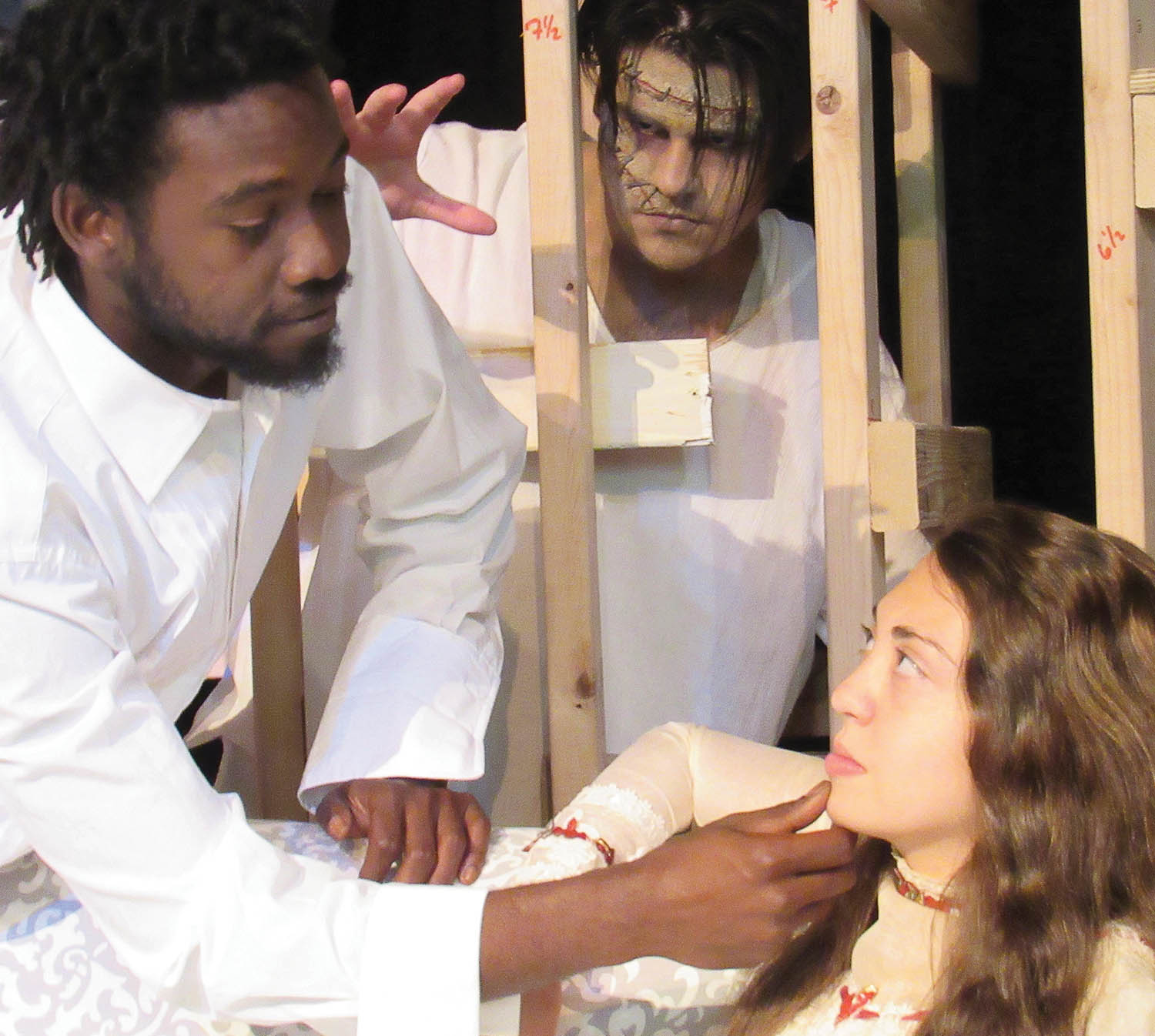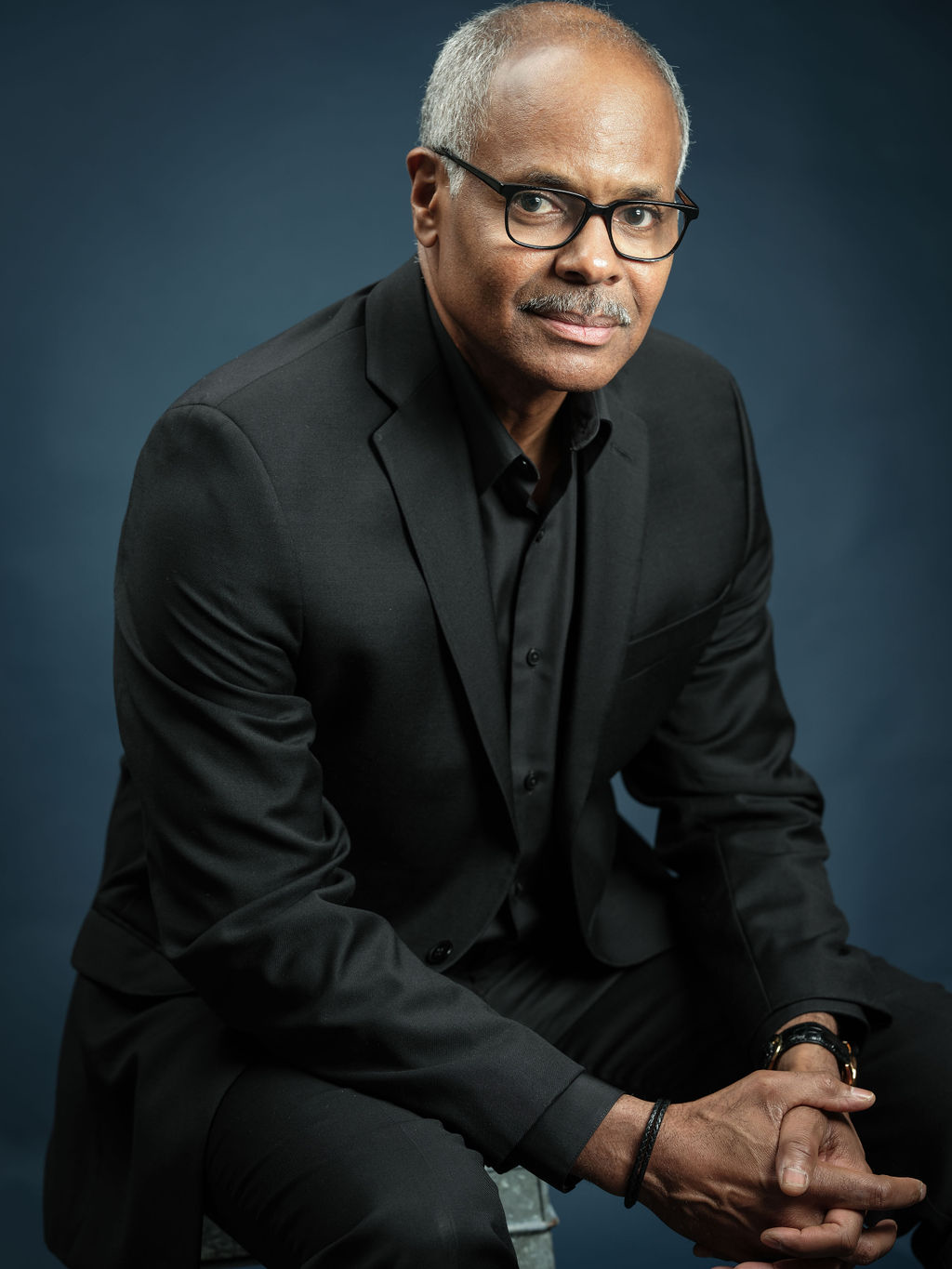
Reese Giles, playing the pathologically lonely Frankenstein, lurches enviously at poet Percy Bysshe Shelley (Thomas Young) and his wife Mary Shelley (Shelby Focarino) in a thought-provoking psychological interpretation of a horror classic.
In old-fashioned horror stories, monsters rampage forth on their brutish missions, followed by hordes of torchbearers and pitchfork wielders thirsty for their demise. At least, Dr. Victor Frankenstein’s monstrous creation is so fated.
But first, crazed by confusion and neglect in a world that is revolted by him, the eight-foot-tall wretch murders Frankenstein’s blameless brother William and Victor’s “so dear, so worthy” fiancée Elizabeth.
However, Jennifer Treadway contends that the monster in Mary Shelley’s 1818 novel may be modernly construed as the hero — at least in terms of rich psychological value.
“He does horrible things, and there’s no excuse for it,” says Treadway, director of the Blue Ridge Community College drama department. “But how could he have been anything else? Look at how he was abandoned.”
It requires nothing less than a paradigm shift, but nevertheless, Treadway feels audiences will sympathize with the beast in BRCC’s October delivery of Mary Shelley’s Frankenstein: The Modern Prometheus. Though it’s a stretch to say Shelley desired similar pity for her cadaverous character, English instructor and playwright Katie Winkler kept close to the classic.
For instance, rather than having the green-skinned monster only capable of emitting obtuse moans, an image popularized by Mel Brooks’ Young Frankenstein, the monster, played by Reese Giles, is instead — as in the novel — quite eloquent. His internal conflict is framed by a Greek chorus and calls attention to the production’s prevailing motif: loneliness.
The Romantic Era emphasized such isolation. Responding directly to the cogs and gears of the Industrial Revolution, Mary Shelley uses the text to rebuke a fast-paced march toward mechanization. Both she and her husband, English Romantic poet Percy Bysshe Shelley, contributed introductions to the work, and also appear as characters in the play.
Four actors hold the lead roles: Emma Allison and Shelby Focarino are Mary Shelley, and Stevie Jones and Thomas Young alternate as Percy Shelley and Dr. Frankenstein. This mode of casting might be said to further the theme — it’s emblematic of a larger expendability, or more generally, loss of self.
“Technologically, we’re always on a fast-track to ‘better,’” notes Michelle Colecio. As BRCC’s dramaturge, she helps the rest of a large cast — the 26 members who populate the Greek chorus — flirt with character. “It’s man versus everything that’s inhuman.”
But if technology is dehumanizing, at least multi-media collaborations make it better. In an initiative called “FrankenChallenge 2016,” students from the college’s film-and-video production program created horror videos for the event; the top three submissions will screen before every performance of the play and be eligible for an audience award.
Colecio quotes Percy Shelley’s “Mutability,” a four-stanza poem acknowledging the inevitability of change, with lines featured in the script: “Man’s yesterday may ne’er be like morrow/Nought may endure but Mutability.”
Equally salient, even after a century’s time, is the “battle with oneself.” And perhaps, beyond the gruesome makeup, mood music, and film footage (Treadway notes one clip: bloody surgery on a wrist), that’s the most potentially horrific aspect of this ghost story.
“It’s the recognition that a monster lives inside us, always,” says Colecio.
Frankenstein: The Modern Prometheus runs from October 27-31 at Blue Ridge Community College’s Patton Auditorium. All performances begin at 7:30pm, plus a matinee on Sunday, October 30, at 2pm. Tickets are $5/students, faculty, and staff; $7/general. To reserve a ticket, contact Treadway at 828-694-1849 or by e-mail at js_treadway@blueridge.edu.



